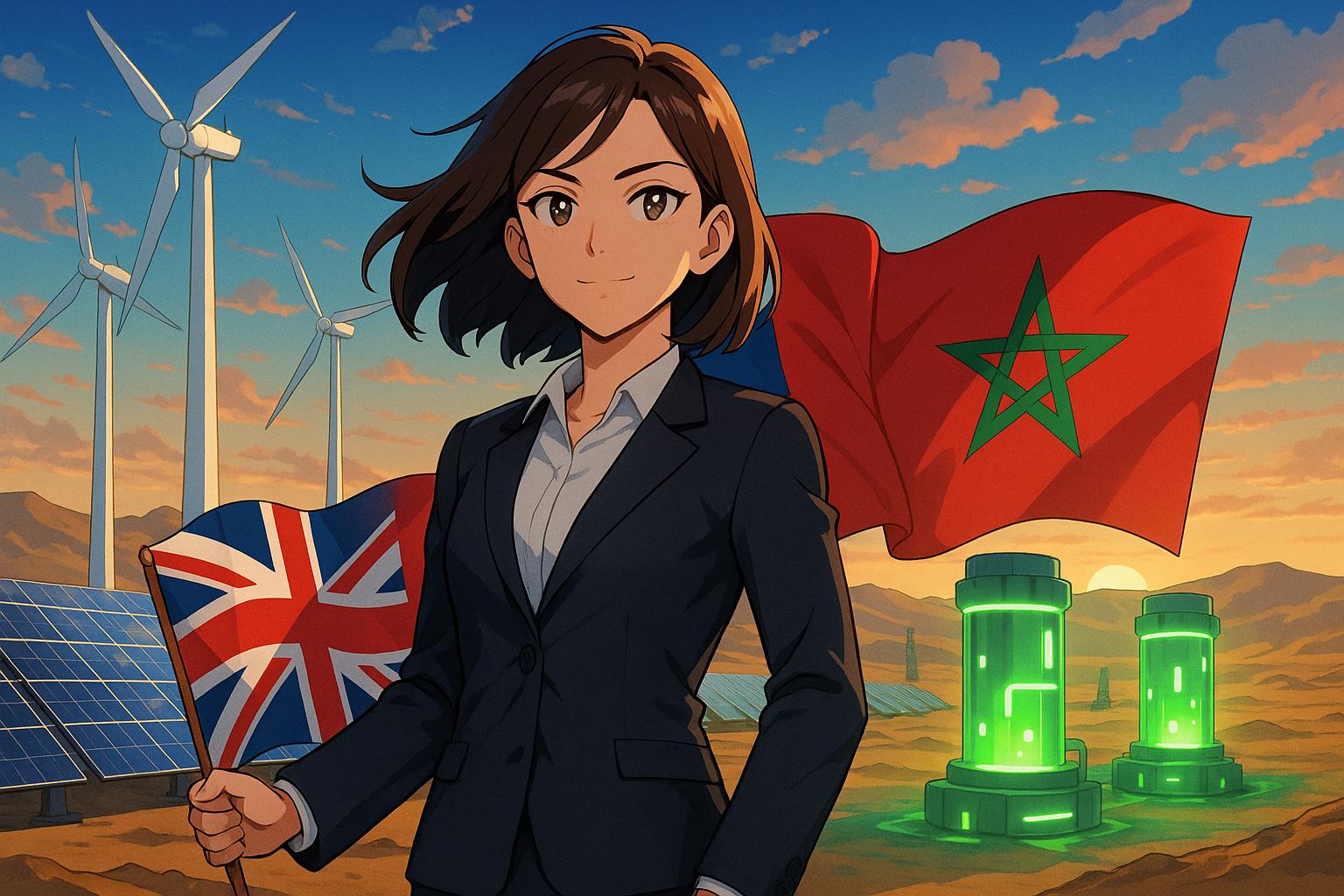The United Kingdom has recently announced its support for Morocco's autonomy plan for Western Sahara, a notable shift in its foreign policy that may have far-reaching implications both politically and economically. This move is viewed against the backdrop of Morocco potentially becoming a significant player in the renewable energy sector, particularly as green hydrogen emerges as a pivotal resource in Europe’s energy transition.
British Foreign Secretary David Lammy, during a visit to Rabat, asserted that Morocco’s autonomy proposal represents the most "credible, viable and pragmatic" solution to the decades-long territorial conflict over Western Sahara. For nearly fifty years, this region has been contested, with Morocco maintaining claims of sovereignty while the Polisario Front, backed by Algeria, fights for independence. The UK's endorsement aligns the country with the United States and France, both of which have previously supported Morocco's stance, although it is likely to complicate relations with Algeria significantly.
This policy change marks a departure from the UK’s historically neutral position, which had characterised the status of Western Sahara as undetermined. The UK government articulated its shift through the lens of its "progressive realism" approach to foreign policy, indicating a prioritisation of strategic alliances and economic interests. The endorsement not only reflects evolving diplomatic relationships but also highlights the UK's commitment to enhancing economic ties with Morocco, particularly in sectors including renewable energy, healthcare, and infrastructure—areas that have gained increased importance as Morocco prepares to co-host the 2030 World Cup alongside Spain and Portugal.
Recent agreements between the UK and Morocco underscore the growing economic interdependence, with a focus on renewable energy initiatives such as Morocco's ambitious green hydrogen projects in Dakhla. This region is garnering attention for its robust renewable energy potential, with several projects lining up that promise substantial job creation and infrastructure development. One key initiative is the White Dunes project, a colossal $2 billion enterprise designed to produce green hydrogen with a staggering 25 gigawatts of combined capacity from wind and solar installations, aiming to commence production by 2030. This highlights Morocco's strategic vision of positioning itself as a renewable energy hub, especially at a time when Europe is striving to reduce its reliance on fossil fuels.
Moreover, the endorsement can be perceived as an opportunity for British firms to access preferential treatment in Morocco's burgeoning renewable sector. Foreign investments are increasingly directed toward projects aimed at transforming Dakhla into a green industrial zone, which is anticipated to manufacture solar photovoltaic panels and wind turbine components. This development not only addresses the energy needs of Europe but could also catalyse significant economic advancements for Morocco.
While the UK’s change in policy has met with approval from Morocco and its supporters, it has also incited criticism, particularly from Algeria and the Polisario Front. These stakeholders argue that such moves undermine the region's stability and perpetuate the existing tensions in the area. The United Nations continues to advocate for a referendum to establish the final status of Western Sahara, a path fraught with delays due to entrenched disagreements over core issues such as voter eligibility.
As international interest in renewable energy projects in Morocco intensifies, the implications of the UK's endorsement will unfold in the coming years. If successful, these initiatives could secure jobs and enhance local economies, while simultaneously reinforcing Morocco's strategic relevance in global affairs—particularly in the realm of climate-oriented investments.
📌 Reference Map:
- Paragraph 1 – [1], [2]
- Paragraph 2 – [2], [3], [4]
- Paragraph 3 – [4], [5], [7]
- Paragraph 4 – [3], [6]
- Paragraph 5 – [5], [6]
Source: Noah Wire Services
